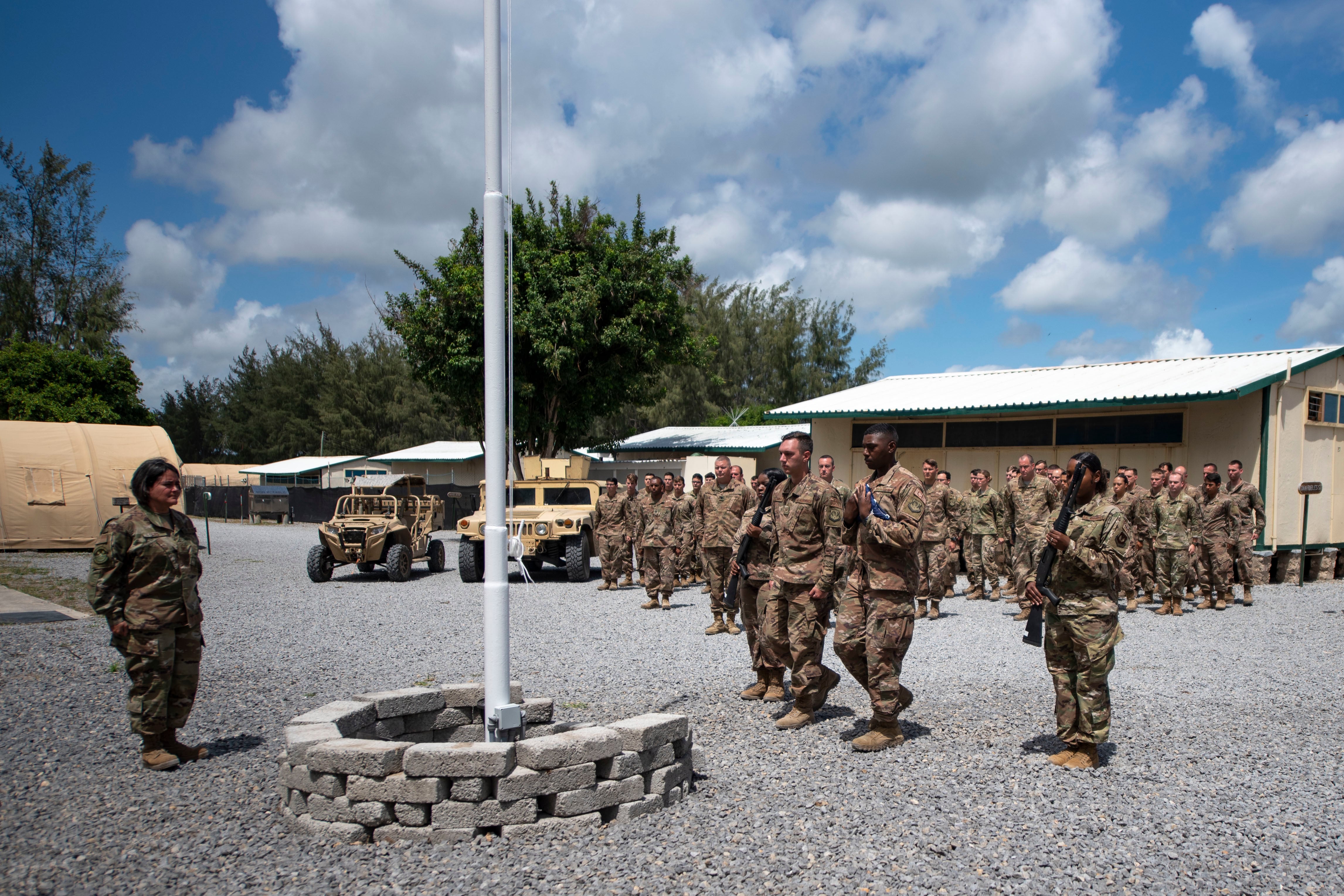Winning in the information space is critically important to security. This past week al-Shabab, a dangerous terrorist organization, accused U.S. Africa Command of misinformation after the tragic attack in Kenya where three Americans lost their lives.
It is important to quickly set the record straight.
In a press release, this terrorist organization dedicated 200-plus words to addressing U.S. Africa Command and our communication efforts specifically. Their claims that seventeen Americans were killed are false. While their words lack credibility for many, it is important that their accusations and ideas be countered as swiftly as they surface.
RELATED

Their accusations, like the majority of their products, contain standard exaggerations and lies, but their words reveal one important truth.
Namely, Al-Shabab is a threat to America and if not dealt with, the U.S. homeland. This is true. It is important this fact doesn’t become buried beneath the extensive media coverage of Iran, China, and even Russia.
America cannot afford to have a short-term memory about the impact a terror group can have on the U.S. homeland. Al-Shabab is a bully. Sometimes punching bullies squarely in the face is a required action to prevent future damage. While airstrikes don’t provide a long-term solution to the terror problem, they create organizational confusion in the ranks of al-Shabab and an effective punch. Airpower, specifically armed over-watch, affords an asymmetric advantage and increased insight into this enemy. The pressure maintained on this group in Africa keeps it from being a threat to the U.S. homeland. These terrorists have expansion plans to include the U.S. homeland, but the work being done in Africa, by African partners, the U.S., and international community, prevents this from becoming reality.
Today, these violent criminals are a daily threat to East Africa, especially Somalia. They kill indiscriminately. This was evident on Dec. 28 when they brutally massacred more than 80 innocent civilians in Mogadishu. While these terrorists present a threat that should be taken very seriously, they also specialize in lies to create doubt about the international community’s resolve to reduce their influence. There is danger if their false narratives are confused with truth and seeds of doubt are planted.
Delivering the truth with speed is critical to countering al-Shabab and maintaining the trust of the American public and in Africa.
Al-Shabab accused U.S. Africa Command of propaganda and lies. I assure you this is not in our playbook. We know we’d lose the very trust, respect, and truth we seek to maintain. We would never compromise our values and integrity. America’s word matters and there is a mindfulness of the weight it carries.
Trust and respect. This is what we have for the Somali people, Kenyans and African partners. They are actively combating al-Shabab to keep Africa and others safe from these criminals and terrorists. The key to al-Shabab’s ultimate defeat rests with our African partners, but our support is required. It is the training we provide that offers long-term value as well as what the State Department and USAID offer in development.
We tell the truth. We provide facts, and in instances where information changes or we aren’t clear in our communication we correct the record. We take the time to understand the facts. This may at times make us a little slower to respond but we’re unwilling to sacrifice accuracy for expediency because we recognize how important truth is to connecting with people. When lies emerge, we need to knock them back. When fake news emerged about the alleged death of Gen. Stephen Townsend, U.S. Africa Command’s commander, he immediately knocked it back. Fighting to preserve truth is critically important because rumor and misinformation disrupts progress.
In the past, I’ve heard people remark on how effective terror organizations are in the communication space. Al-Shabab is not effective in the communication space. Here’s why. When you lie and rely on misinformation repeatedly, it builds a rotted foundation with the very people with whom you seek to reach and build a relationship. Al-Shabab struggles for legitimacy in the communication space. This is why they have started using press releases and continue to use videos to communicate intent. Each are desperate attempts for legitimacy but their brand is too deeply rooted in hate and violence. Their latest video includes numerous inaccuracies, and buried toward the back of their latest video is an image of Osama bin Laden reinforcing the group’s tie to al-Qaeda.
The truth about this enemy. Al-Shabab is an affiliate of, and aligned with, al-Qaeda. They indiscriminately and carelessly kill. These violent criminals are a danger to U.S. interests and Americans. Like bin Laden, they have communicated an intent to attack the U.S. As we stated in a press release on Nov. 5, “al-Shabab released a 52-minute video narrated by al-Shabab leader Ahmed Omar Abu Ubeyda calling for attacks against Americans wherever they are, stating the American public is a legitimate target, and echoing a number of other global jihadist themes observed in Osama Bin Laden historical videos.” These terrorists continue to reinforce this narrative after the Jan. 5 attack and issued another video reinforcing their ties to al-Qaeda, the terror group that attacked America, Sept. 11, 2001.
These are facts the American people, African partners, and friends need to understand and heed.
We remain committed to helping people understand and characterize the nature and intent of this enemy as well as malign activity on the continent.
U.S. Africa Command’s cost effective efforts are helping to keep the U.S. homeland, Africa, and international partners more secure. Our activities on the continent help keep al-Shabab ambitions against the U.S. homeland in check. The work on the continent is important for Africans and Americans. Pressure on the network today means a safer and more secure America—both today and in the future. This is the truth.
Air Force Col. Christopher Karns is spokesman for U.S. Africa Command.
Editor’s note: This is an Op-Ed and as such, the opinions expressed are those of the author. If you would like to respond, or have an editorial of your own you would like to submit, please contact Military Times managing editor Howard Altman, haltman@militarytimes.com.




